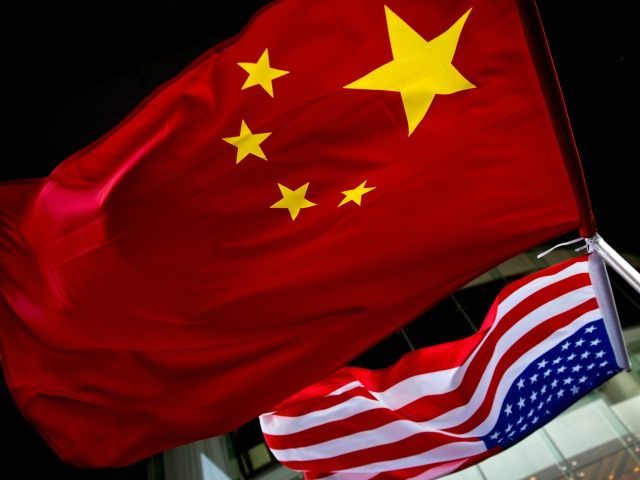Following the conclusion of President Xi Jinping’s visit to Saudi Arabia, Egypt, and Iran, Chinese news outlet Xinhua is touting the superiority of “Chinese wisdom” in solving the many regional issues plaguing the Middle East, from instability to terrorism to economic issues.
In a column titled, “Chinese wisdom for Middle East problems,” the editorial staff suggests that “Western intervention” is as much a hindrance to the peaceful development of the Middle East as “prolonged sectarian rifts” and that only an impartial observer like China can aid in bringing all sides of multiple conflicts to the table. “It is hopeful that the wisdom of China, which is trusted by Middle Eastern countries as a non-interfering country, could serve as an effective remedy for problems and herald a brighter future for the region,” the article contends, claiming China as “successful experience over the past 30 years” in diplomacy.
“Western interventions in the region based on selfish agendas have provided counterevidence” of how non-Chinese diplomatic methods fail, the article continues.
Chinese wisdom, Xinhua notes, involves the notion that “the key to choosing the right path is ensuring it suits the national conditions. The article does not elaborate on what national conditions should be taken into account.
Xinhua cites Xi’s speech before the Arab League as evidence that this push for a looming Chinese presence in all Middle Eastern affairs is not a power grab. “The Chinese leader made it clear that his country is not looking for proxies or trying to fill any ‘vacuum’ in the Middle East, but aspiring to build ‘a network of mutually beneficial partnerships.'”
The Chinese government has described Xi’s Middle Eastern tour as a primarily economic venture, and the results show that China has a clear vested economic interest in the region. Xi signed a number of agreements with both Iran and Saudi Arabia to help with nuclear development – taking over efforts to revitalize the Arak nuclear power plant allegedly without violating the terms of this summer’s P5+1 nuclear agreement. Xi also secured billions in construction projects in Egypt.
Beyond economic benefits to Xi’s outreach, however, the Chinese government has made clear its intent to promote itself as the world power best equipped to monopolize relations with Mideast countries. In December, long before Xi’s trip, Chinese state media began promoting the idea of having China play a more proactive role in talks between the Syrian government and various opposition groups, claiming that China would be a superior mediating partner to any Western country. “A problem as complicated as the Syrian crisis cannot be solved by any single party or country alone; instead, it requires the joint efforts of the international community. China is willing to play a constructive role in pushing for a political solution for the Syrian crisis,” a People’s Daily article argued. Two months earlier, Chinese Foreign Minister Wang Yi noted that China was “willing to play a constructive role” in Syria, as it “has no self-interest in the Middle East.”
Upon visiting Egypt this month, Xi penned a column for nationally circulated newspaper Al Ahram in which he argued that China and Egypt have a special relationship that goes back to ancient times, making China a more trustworthy partner than other alternatives, like Russia and the United States. “Friendly exchanges between our peoples date back to antiquity. More than 2,000 years ago, the imperial court of China’s Han Dynasty sent envoys to Alexandria,” Xi wrote, suggesting the “New Silk Road” initiative to be the best option for the administration of President Abdel Fattah al-Sisi.
President Sisi’s administration has struggled to keep ties between the United States and Egypt strong, as the Obama administration has repeatedly distanced itself from Sisi, embracing Muslim Brotherhood figures, instead.
“America is losing Egypt. We see how you treat Israel, who for 50 years was your closest ally. We see how you treat them and how you are now treating us. Russia and China see it too,” senior Egyptian statesman Mostafa el-Gindy told Breitbart News in early 2015.

COMMENTS
Please let us know if you're having issues with commenting.